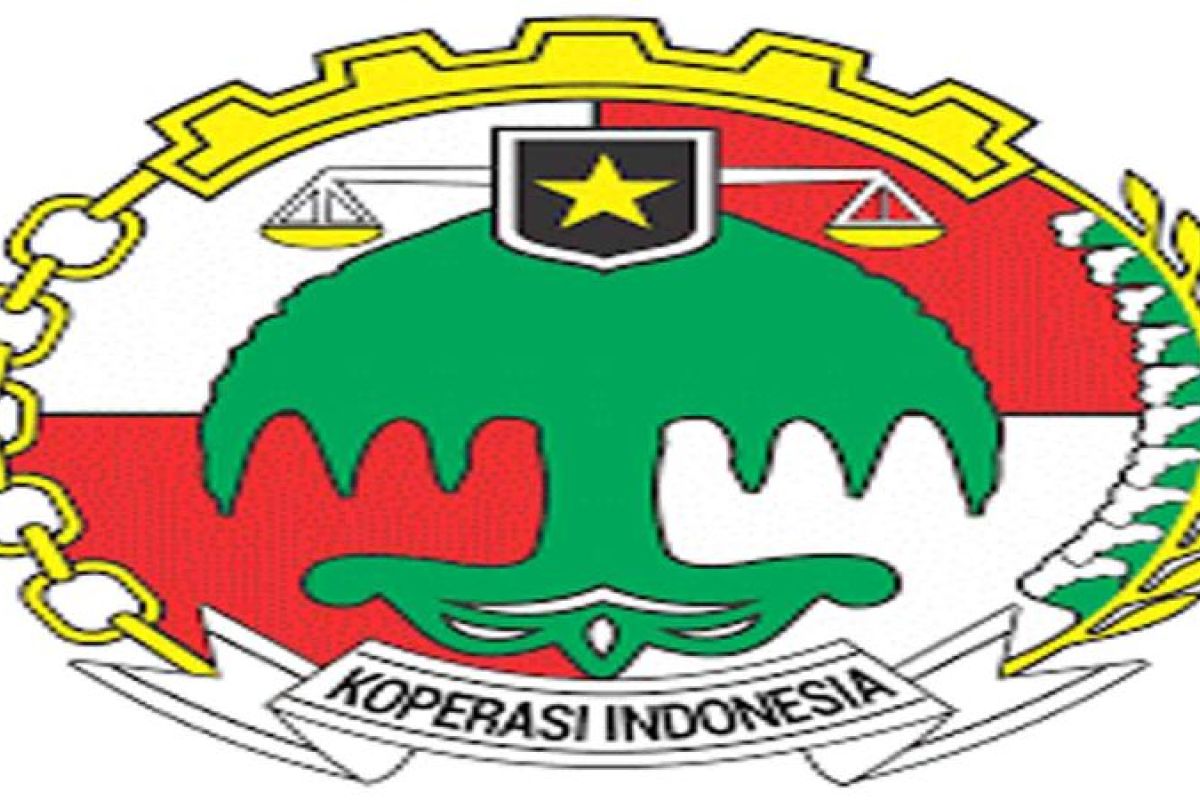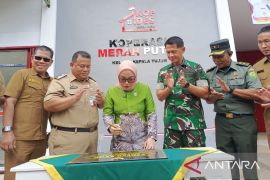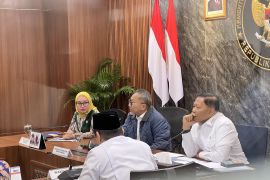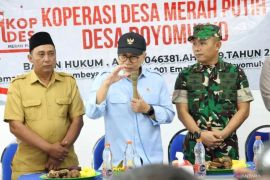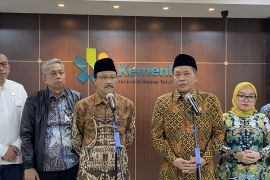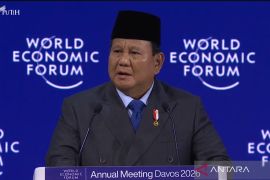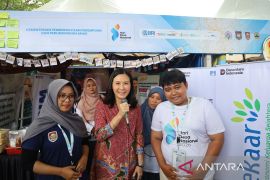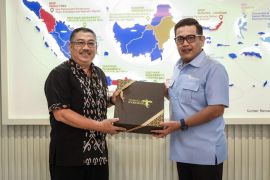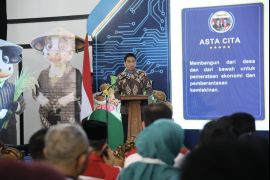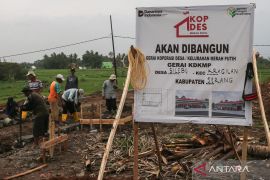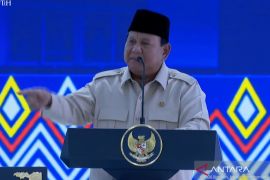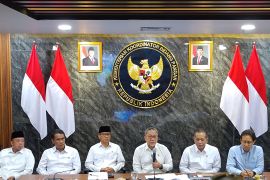This target was formalized with the issuance of Presidential Instruction No. 9 of 2025 to accelerate the implementation of the cooperative program in late March.
Under this instruction, President Prabowo assigned several key tasks to the Ministry of Cooperatives for the program’s preparation and execution.
The president urged the ministry to implement the program to the fullest extent in the hopes of boosting the economy of rural regions, assisting them in fully harnessing their diverse potentials.
That being said, the government has acknowledged that every village in Indonesia possesses unique strengths -- such as agricultural products, fisheries, handicrafts, or tourism appeal -- that can be developed further.
Minister of Cooperatives Budi Arie Setiadi has stated that Red and White Village Cooperatives require collective participation from rural residents and officials to serve their primary purpose of fostering economic self-reliance in villages.
Meanwhile, Deputy Minister of Cooperatives Ferry Juliantono expressed optimism that initiatives starting at the village level could help push Indonesia toward that ambitious eight percent economic growth target.
"Economic growth that begins in rural areas is expected to create nationwide impacts," he affirmed.
He also emphasized that the ministry is committed to making the Red and White Village Cooperatives program a success, helping cooperatives grow into stronger and more competitive business entities.
"A solid level of synergy is key to advancing the president’s directive to establish Red and White Village Cooperatives across Indonesia," he added.
About relevance
The government’s optimistic view of cooperatives as reliable instruments for national economic growth has been shared by economists and related experts.
That perspective makes sense -- after all, the spirit of cooperation has deep roots in Indonesia, championed by Mohammad Hatta, the country’s first vice president, who is widely respected as the father of cooperatives in Indonesia.
Hatta strongly believed that cooperatives embody democratic values in the economy and that these business entities could act as pillars of equitable social and economic welfare for the entire population.
However, one big question is worth asking about Prabowo’s program: Is rapidly increasing the number of cooperatives still relevant in today’s global economic landscape?
“Globally, we’ve been seeing a drop in the number of cooperatives, but the quality of their services tends to be improving. With that in mind, it might be better for the government to focus on merging and consolidating existing cooperatives,” Suroto, a cooperative expert, stated.
He also advised the government against using a one-size-fits-all approach for the planned village cooperatives, warning that such a method could end up being counterproductive.
Essentially, Indonesia does provide fertile ground for village-based business entities, as the country already has experience with models like village unit cooperatives (KUDs), introduced in 1963, and village-run enterprises (BUMDes), launched in 2014.
In 2023, the government reported that Indonesia was home to about 50 thousand active BUMDes, which have significantly contributed to rural economies and employment rates.
Cooperatives Minister Setiadi elaborated that the creation of Red and White Village Cooperatives would complement the government’s efforts to boost economic growth in villages. He reassured the public that the new cooperatives would cause no harm to existing BUMDes.
“We can assure the public that BUMDes will continue to operate. Our goal is to create new cooperatives in villages with a fresh business model, making these cooperatives key players in building an equitable economy,” he clarified.
This raises another key question: What steps should be taken to ensure these planned village cooperatives deliver better outcomes than their predecessors?
Hendri Saparini, a senior economist from the Center of Reform on Economics (CORE), stated that the planned cooperatives should be built as a platform that facilitates existing economic activities.
“Developing cooperatives is a noble task since this endeavor is key to a more inclusive economy. However, they must be based on and facilitating economic activities, not the other way around,” she opined.
Advancing in 2025
The Indonesian government is confident about hitting its target of forming 80 thousand cooperatives by the end of June 2025 -- just a couple of weeks before National Cooperatives Day, which is celebrated annually on July 12.
Adding to the momentum, 2025 has been declared the International Year of Cooperatives (IYC) by the United Nations General Assembly. For this occasion, the UN has chosen the theme of “Cooperatives Build a Better World,” highlighting cooperatives' meaningful and lasting contributions to the global economy and their potential to help tackle shared challenges.
This theme also emphasizes cooperatives as key drivers in achieving the Sustainable Development Goals (SDGs).
To fully capitalize on the attention brought by the 2025 IYC, the Indonesian government needs to pay close attention to the governance and management of its planned rural cooperatives, according to the Institute for Development of Economics and Finance (Indef).
Indef Executive Director Esther Sri Astuti stressed that cooperatives can only become economic drivers if they are run by capable hands.
“They need solid management. In other words, cooperative operators need technical guidance and audits. It is important that the government consider all the key factors, starting from capital and business operations to governance,” she stated.
In short, the government’s positive messaging should be backed by thorough preparations to ensure these village-based cooperatives can perform well and truly live up to expectations.
With the international spotlight on cooperatives this year, now is the perfect time for Indonesia to prove that cooperatives remain resourceful and relevant in today’s fast-changing global economy.
Related news: Government aims to establish 80 thousand village cooperatives by June
Related news: Indonesia plans task force to advance village cooperatives program
Translator: Arnidhya N, Tegar Nurfitra
Editor: Primayanti
Copyright © ANTARA 2025
